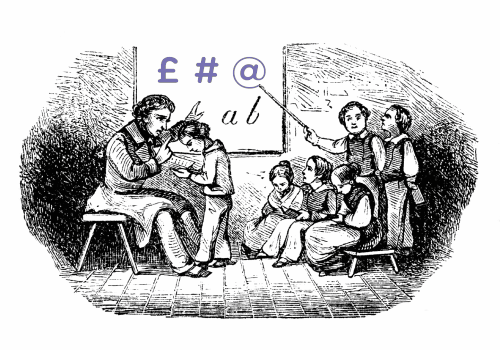A similar effect was seen in Ethiopia after the downfall of the Derg, a communist military dictatorship, in 1987. The Derg had mandated that education be in Amharic, a Semitic language with its own script, very different from Oromigno, a Cushitic language spoken by the Oromo people and written in the Latin script. A study from 2017 looking at Oromo children educated just before and just after the change showed an 18-percentage-point increase in literacy. Newspaper readership was also 25% higher among the mother-tongue educated people, which very likely meant greater political participation.
1987年,埃塞俄比亞共產主義軍事獨裁政權Derg倒臺后,也出現了類似的情況。Derg規定教育必須使用阿姆哈拉語,阿姆哈拉語是一種閃族語言,有自己的文字,和奧羅莫語非常不同,奧羅莫語是奧羅莫人使用的一種庫希特語族語言,用拉丁文書寫。2017年的一項研究調查了教育改革前后接受教育的奧羅莫兒童,結果顯示識字率上升了18個百分點。在接受母語教育的人群中,報紙的讀者群也增加了25%,這很可能意味著政治參與度更高。
Of course, parents may be more concerned that their offspring speak English, rather than that they learn history or arithmetic. They may think it worth sacrificing some of the knowledge and understanding that can be gained from being educated in the mother tongue for better prospects in the labour market. But there seems not to be a trade-off. A forthcoming study looked at 12 schools in Cameroon which taught children in Kom rather than, as is standard practice, English, during the first three years of school. Not only did Kom-medium children perform better in all subjects than English-medium ones in third-year tests; in the fifth year they even outperformed English-medium children in English.
當然,父母可能更關心他們的孩子講英語,而不是學習歷史或算術。他們可能認為,為了在勞動力市場獲得更好的前景,犧牲一些從母語教育中獲得的知識和理解是值得的。但妥協似乎本就不存在。即將進行的一項研究考察了喀麥隆的12所學校,這些學校在入學的頭3年用Kom語教學,而不是像標準做法那樣用英語教學。
“Parents are right that speaking English works for a child,” says Zia Abbas of The Citizens’ Foundation (TCF), a charity that runs 1,500 schools in Pakistan at which children are taught in Urdu. “But they don’t understand the difference between English as a subject and English as a medium of instruction. The children end up not learning English, and not learning anything.”
“父母認為講英語有益于孩子發展的看法是正確的,”公民基金會的齊亞·阿巴斯說,公民基金會是一個運營者1500所學校的慈善機構,這些學校都用烏爾都語教學。“但是他們不理解英語作為一門學科和英語作為一種教學媒介之間的區別。”到頭來沒有學英語,而且什么也沒學到。”

Some governments have taken this on board. In Pakistani Punjab the new Pakistan Tehreek-e-Insaf government, which took power in the province last year, is to reverse the previous government’s move from Urdu to English. “We don’t have enough qualified teachers,” says Murad Raas, Punjab’s education minister, “and children in the rural areas can’t learn in English. They must be taught in a language they understand.” Punjab is developing a new Urdu-medium curriculum.
一些政府已經考慮到了這一點。在巴基斯坦旁遮普省,去年上臺的新巴基斯坦正義運動黨政府將扭轉上屆政府從烏爾都語轉向英語的趨勢。“我們沒有足夠的合格教師,” 旁遮普教育部長穆拉德·拉斯說,“農村的孩子不能用英語學習。他們必須用能理解的語言來學習。”旁遮普正在開發一種新的烏爾都語中等課程。
Uganda has implemented mother-tongue instruction for the first four years in 12 different languages, and seen big improvements in learning in some languages, though not all. Kenya, too, is moving in the mother-tongue direction. Last month the government introduced a new curriculum which includes a half-hour lesson in “literacy”— in the mother tongue—every day.
烏干達在頭四年用12種不同的語言實施母語教學,并在一些語言的學習上取得顯著進步,盡管并不是每種語言教學都取得成就。肯尼亞也在向母語的方向發展。上個月,政府推出了一項新課程,包括每天半小時的母語“讀寫”課。
譯文由可可原創,僅供學習交流使用,未經許可請勿轉載。












